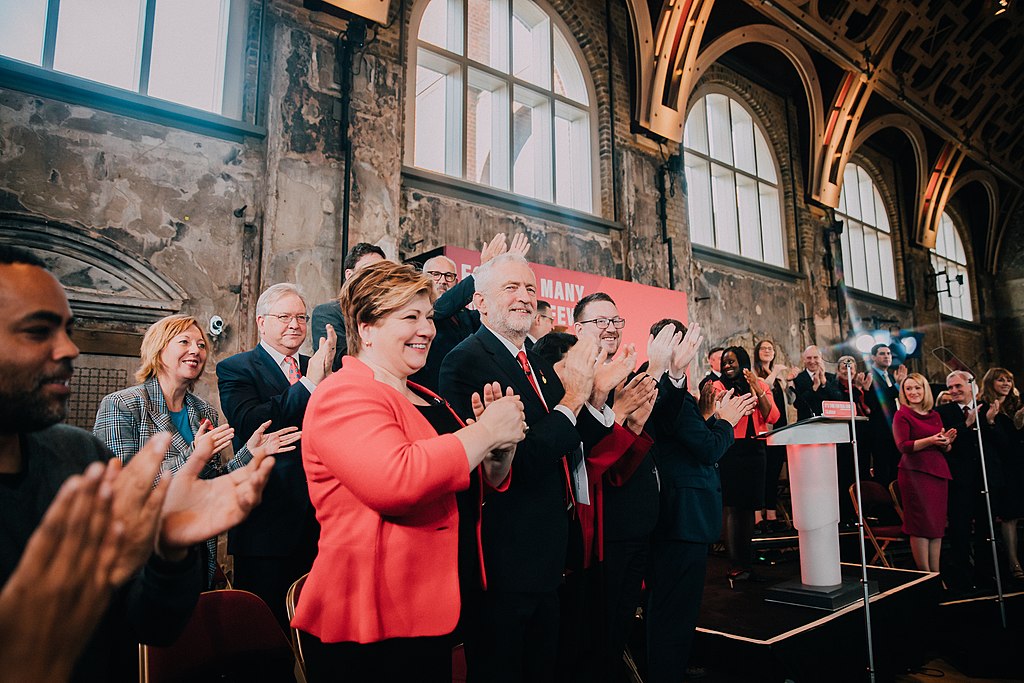Last week, Jess Phillips withdrew from the race for the new Labour leader, but she left behind a number of other women in the running, including Lisa Nandy, Emily Thornberry, and Rebecca Long-Bailey. The only man in the running is Keir Starmer, who appears to be cut from the Blair line of Labour leaders – snappy suit, a little charm, a few good looks. It remains to be seen who will win, although my money is on a two-horse race between Long-Bailey (a close ally of Corbyn, which I personally count in her favour, but I think it may be to her detriment among party members) and Starmer, an ex-lawyer.
I would love for the new leader to be a woman. For one thing, it’s just about time. We’ve had two female Prime Ministers, although they were both Tories, and there have been female leaders of almost every other major party – the Lib Dems, the SNP, the Green Party. Gosh, even the Scottish Conservatives had Ruth Davidson for a time. Labour is lacking in this area, and it shows.
Ten years of Tory austerity have hit women disproportionately, and especially those who are further marginalised by race, disability, or sexuality, for example. Tory cuts to children’s funding, for example the loss of so many Sure Start centres, the reduction of child benefit for a third child or more, the rise of zero-hours contracts – all of these things have hit women the hardest. For Labour to raise up one of these voices would mean a lot to female voters looking for someone who understand their struggles.
Labour currently has more female MPs than male ones, which is excellent news. Labour was built on the backs of working-class women fighting for and alongside the men, whether in trade unions, in the struggle for equal pay, or more recently in the fight against austerity. That’s without mentioning the unpaid labour that women have done at home and behind the scenes for centuries. We have had an excellent deputy leader in the shape of Diane Abbott, a woman who has been subjected to the most disgusting racism and sexism, but who has been a huge advocate of women’s rights for years. We on the left should hold ourselves to higher standards, and a female leader would be a step in that direction.
My MP was Angela Smith, who left the Labour party to join Change UK and who has now lost her seat. The local Labour Party decided that a woman should follow her, and indeed put three candidates forward for selection. Sadly, Francyne Johnson did not win in the 2019 election. Miriam Cates – the woman made notorious just a week after the election for profiting off the existence of food banks – won. She may be female, but I’m not a fan. She is extremely privileged and has no idea about the lives of many of her constituents, living in the ex-mining villages that Thatcher’s government destroyed in the 80s. To represent us, you have to do more than pay lip service to our gender.
Theresa May and her predecessor Margaret Thatcher have hardly been good examples of women in leadership – although that is down to their politics and not because they are women. Neither of them had many close female allies while in power, something which does lend credence to the suggestion that they pulled up the ladder behind them instead of helping to break down the glass ceiling. May will probably be remembered as having “failed” at Brexit but for me she was guilty of putting her name behind the “Go home” vans, an act that saw a rise in racist incidents towards people of colour in Britain. Hardly the kind of person we want in power, female or not.
Finally, in the wake of the terrible Labour defeats the party must look at itself closely to consider why. Corbyn’s critics have argued that he should have stepped down immediately following the election, but he has said he will stay until a new leader is elected. I think this is a wise move, hopefully avoiding a total power vacuum into which the wrong person will be sucked. Corbyn’s failings are there, but the rise of young voters and young members and the whole Corbynista movement can’t be dismissed entirely. I hope that a young woman steps up to be leader, a woman who those of us in our twenties and thirties can get behind, can believe that she stands for us. I don’t want, as has been suggested, Starmer to stand aside – I want there to be a fair fight, but I want a woman to win.

